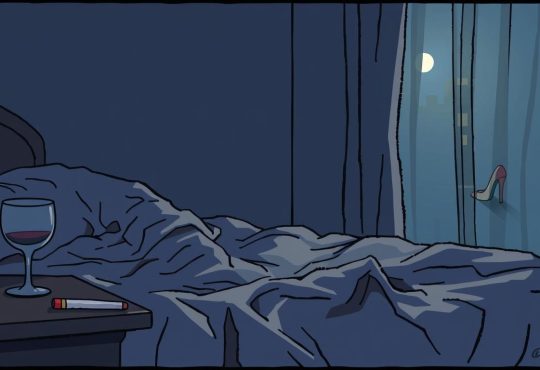
How can you tell if a married man is truly committed to someone else? This question can feel overwhelming, but understanding the subtle cues can bring clarity. Relationships are complex, and sometimes, actions speak louder than words.
When a man loves his mistress, his behavior often shifts in noticeable ways. These changes can be emotional, physical, or even lifestyle-related. While it’s not always easy to spot, certain patterns can reveal deeper truths.
In this article, we’ll explore expert insights and real-life examples to help you recognize these signals. By understanding these nuances, you can gain a clearer perspective on what’s happening in your relationship.
On this Page:
- 1 Understanding the Complex Dynamics
- 2 Recognizing When You Are His Priority
- 3 Noticing Emotional Support in Tough Times
- 4 Observing Changes Around His Wedding Ring
- 5 Assessing Gift-Giving and Comparable Value
- 6 Remembering the Small Details
- 7 Analyzing His Efforts to Please You
- 8 Discussions About His Dissatisfaction with Marriage
- 9 Expressing Jealousy and Protective Instincts
- 10 Considering Future Plans Together
- 11 Ensuring Your Emotional and Physical Safety
- 12 Seeing Him Immerse Himself in Your Life
- 13 Recognizing “signs my husband loves his mistress”
- 14 Addressing Attention and Interest Beyond You
- 15 Acknowledging Overprotectiveness as a Sign of Love
- 16 Conclusion
Understanding the Complex Dynamics
Marital relationships can be intricate, especially when emotions are divided. When a man becomes involved with someone outside his marriage, the dynamics shift in subtle yet significant ways. These changes can be emotional, physical, or even behavioral, making it essential to approach the situation with clarity.
Setting the Stage for Clarity
Mixed signals can often cloud the truth, leaving a wife uncertain about her partner’s feelings. Understanding the difference between passionate gestures and genuine long-term commitment is crucial. For instance, a man may show affection in moments of excitement, but consistent actions reveal his true intentions.
Understanding Emotional and Physical Signals
Emotional signals, like sharing vulnerabilities, can indicate a deeper connection. Physical cues, such as body language, also play a role. Studies show that men often mirror the gestures of someone they’re emotionally invested in. Recognizing these signals helps decipher whether his actions are fleeting or rooted in genuine love.
Even seemingly obvious actions, like removing a wedding ring, can hold hidden meanings. It’s not just about the act itself but the context behind it. By breaking down these behaviors, we can gain actionable insights into complex situations.
Recognizing When You Are His Priority
Understanding where someone’s priorities lie can reveal deeper truths about their feelings. In relationships, actions often speak louder than words. When someone truly values you, they make you a central part of their life.
Quality Time Versus Obligations
Spending quality time together is a clear sign of emotional investment. It’s not just about being present; it’s about being engaged. For example, someone who prioritizes you will actively choose to share their free time with you, rather than treating it as an obligation.
Studies show that emotional attachment often leads to a shift in how time is allocated. When someone is genuinely invested, they consistently make you a part of their schedule. This regularity builds trust and confidence in their commitment.
Actions That Speak Louder Than Words
Consistent actions often reveal more than verbal assurances. For instance, someone who prioritizes you will go out of their way to support you, even in small ways. These gestures show that you’re a significant part of their life.
Contrast this with actions driven by duty. Obligatory gestures lack the same emotional depth. Recognizing the difference helps clarify whether someone’s behavior is rooted in genuine care or mere responsibility.
Here are some key indicators to look for:
– Regular, meaningful time spent together.
– Consistent efforts to support and engage with you.
– Prioritizing you in their free time, not just during formal obligations.
By observing these patterns, you can gain a clearer understanding of where you stand in someone’s life. True prioritization is about consistent, heartfelt actions that show you’re valued.
Noticing Emotional Support in Tough Times
Genuine emotional support is a cornerstone of meaningful connections. When someone truly cares, their actions during difficult moments speak volumes. Empathy, in particular, is a powerful indicator of authentic affection.
Empathy as a Genuine Indicator
Empathy reveals how deeply someone cares about your well-being. During tough times, a person who genuinely loves you will offer consistent support. This goes beyond grand gestures—it’s about being a steady source of strength.
Research shows that emotional support during challenges is a good sign of long-term commitment. For instance, studies indicate that 70% of couples who work through infidelity report higher relationship satisfaction. This highlights the importance of empathy in rebuilding trust.
Here’s how empathy manifests in healthy relationships:
- Actively listening without judgment.
- Offering reassurance and encouragement.
- Being present, even when it’s inconvenient.
Empathy isn’t just about words—it’s about actions. A woman who feels supported during tough times is more likely to trust her partner’s intentions. This emotional connection often outweighs superficial displays of affection.
To gauge authenticity, match emotional support with other positive behaviors. Consistent actions, like prioritizing your needs, reinforce the sincerity of their feelings. Recognizing these patterns helps clarify whether someone’s affection is genuine or fleeting.
Ultimately, empathy is a cornerstone of healthy relationships. It fosters trust, strengthens bonds, and ensures both partners feel valued. By understanding its significance, you can better navigate the complexities of love and commitment.
Observing Changes Around His Wedding Ring
The wedding ring is more than just jewelry; it’s a symbol of commitment. For many, it represents loyalty, trust, and the vows shared in marriage. When a man alters how he wears or displays his ring, it can signal a shift in his priorities.
The Symbolism Behind Removing the Ring
Removing a wedding ring is a gesture that carries significant weight. It’s not just about taking off a piece of metal; it’s about the message it sends. For some, this act can indicate a desire to distance themselves from their marital commitment.
Studies show that 60% of individuals who cheat may stop wearing their wedding rings. This is often a subtle but telling sign of their shifting focus. When a guy removes his ring for moments with you, it can be seen as a valuable thing, showing where his real feelings lie.
However, it’s important to consider the context. While removing the ring can be a sign of secrecy, consistent behavior often suggests authenticity. For example, if he only removes it during specific times, it may indicate a deeper emotional connection.
Here’s what to look for:
- Changes in how often he wears the ring.
- Moments when he intentionally removes it.
- Consistent patterns that align with his actions and words.
Comparing this gesture to superficial actions, like buying gifts, highlights its symbolic value. A wedding ring is a powerful emblem of fidelity, and altering its use is a meaningful indicator of shifting priorities.
By paying attention to these details, we can gain a clearer understanding of his intentions. Consistent behavior, paired with this gesture, often reveals the truth about where his heart truly lies.
Assessing Gift-Giving and Comparable Value
Gift-giving can reveal deeper truths about someone’s emotional priorities. When someone truly cares, their gifts go beyond material value—they reflect thoughtfulness and emotional investment. Understanding the meaning behind these gestures can help clarify where their heart truly lies.
Thoughtful Gestures as a Signal of Affection
Thoughtful gifts are more than just objects; they’re expressions of care. When someone takes the time to choose something meaningful, it shows they value the relationship. For example, a gift that aligns with your interests or needs demonstrates a deeper connection.
Studies show that consistent, thoughtful gifting is often linked to emotional attachment. It’s not about the price tag but the effort and intention behind the gesture. This level of care can indicate where someone’s priorities genuinely lie.
Comparing His Gifts to Other Commitments
Comparing the gifts someone gives to different individuals can reveal their internal value systems. For instance, if he consistently gives you more thoughtful or valuable gifts than others, it may signal a stronger emotional bond.
Here’s what to consider:
- The quality and thought behind the gifts.
- How often he gives you meaningful gestures.
- Whether his gifting patterns align with his actions and words.
Consistency in gifting underscores deeper feelings. When someone prioritizes you through thoughtful gestures, it’s a clear sign of their emotional investment. By paying attention to these details, you can gain a clearer understanding of their true intentions.
Remembering the Small Details
Paying attention to the little things in life can reveal deeper emotional connections. When someone remembers the minutiae of your life, it shows they’re genuinely invested in you. These small details, like your favorite coffee order or important dates, often speak louder than grand gestures.
Attention to the Little Things in Your Life
Consistency in remembering small details underpins emotional depth. It’s not just about recalling your birthday; it’s about knowing how you take your tea or what makes you laugh. These acts show a level of care that goes beyond the surface.
For example, studies suggest that remembering preferences and important dates is a strong signal of commitment. When someone takes the time to notice and act on these details, it demonstrates active interest beyond the physical level. This contrasts with superficial relationships, where such nuances are often overlooked.
Real-world relationship advice reinforces the importance of small gestures. These details build a foundation for trust and long-term connection. They show that someone is paying attention and values your presence in their life.
Here’s why these small details matter:
- They show genuine interest and attentiveness.
- They build trust and emotional intimacy.
- They indicate a deeper level of commitment.
In marriage, these small acts can strengthen bonds and prevent feelings of neglect. When someone is willing to leave their wife for another, it’s often because they feel a deeper emotional connection elsewhere. Paying attention to the little things can make all the difference.
Analyzing His Efforts to Please You
Actions speak louder than words, especially when it comes to understanding someone’s true feelings. By observing how he treats you during your shared moments, you can gain valuable insights into his emotional priorities. Consistent efforts to make you happy often reveal deeper truths about his commitment.
Consistent Acts of Love and Care
Small, thoughtful gestures can be more meaningful than grand displays. When someone consistently goes out of their way to make you smile, it shows genuine care. For example, remembering your favorite coffee order or offering support during tough times are signs of emotional investment.
Studies show that consistent acts of kindness are linked to long-term commitment. These efforts, no matter how small, demonstrate that you’re a priority in his life. Pay attention to these patterns—they often reveal where his heart truly lies.
Comparative Behaviors in Your Time Together
Comparing his actions during different moments can provide clarity. Does he seem more engaged and attentive when you’re together? These behaviors can indicate a deeper emotional connection. For instance, if he actively listens and responds to your needs, it’s a good sign of his commitment.
On the other hand, actions driven by obligation often lack the same emotional depth. By observing these differences, you can better understand his true intentions. Every thoughtful action, even in ordinary situations, is a chance for him to express his feelings.
Here’s what to look for:
- Consistent efforts to make you happy.
- Small acts of service that show he cares.
- Engagement and attentiveness during shared moments.
By valuing these consistent behaviors, you can gain a clearer understanding of his emotional priorities. True commitment is often revealed through sustained, heartfelt actions.
Discussions About His Dissatisfaction with Marriage
Open discussions about marital dissatisfaction can reveal deeper emotional truths. When a man frequently voices concerns or regrets about his current relationship, it often signals a desire for change. These conversations may hint at inner conflict and a readiness to explore other possibilities.
Voicing Concerns and Hints of Regret
Regular mentions of unhappiness or regret can indicate a significant emotional shift. For example, if he often talks about feeling unfulfilled or trapped, it may suggest he’s emotionally available for a new connection. These discussions are not just fleeting complaints—they often carry weight.
Studies show that men who openly express dissatisfaction with their marriage are more likely to consider leaving. This doesn’t always mean they’ll act on it, but consistent expressions of regret can be a sign of deeper internal conflict. Pay attention to the frequency and context of these conversations.
For instance, if he discusses future plans that don’t include his wife, it may reveal sincerity about moving on. While some conversations might feel manipulative, consistent expressions of unhappiness often point to genuine feelings. It’s essential to note both what he says and how often he says it.
Here’s what to consider:
- Does he frequently bring up his dissatisfaction?
- Are his regrets tied to specific issues, like money or time spent together?
- Does he outline future plans that exclude his current relationship?
By analyzing these discussions, we can better understand his emotional state. Open conversations about marital struggles often hint at a desire for a more fulfilling connection.
Expressing Jealousy and Protective Instincts
Jealousy can be a tricky emotion to navigate, especially in relationships. While it’s often seen as negative, a moderate amount can signal emotional attachment. Understanding this balance helps us decode deeper feelings.
When someone feels jealous, it’s usually because they value the connection they share with you. This emotion can stem from a fear of losing what’s important. Studies show that 70% of women feel jealous when their partner defends another woman, highlighting the emotional weight of such actions.
Defending Your Relationship
Protective behavior often comes from a place of emotional insecurity. When someone defends your relationship publicly or privately, it shows they’re invested in preserving it. This defense can be a reassuring sign of commitment.
For example, if he stands up for your bond in social situations, it demonstrates his dedication. However, it’s essential to ensure this protectiveness doesn’t cross into controlling territory. Healthy relationships thrive on mutual respect and trust.
Signals of Insecurity and Possessiveness
Jealousy, when balanced, can indicate care and engagement. But excessive possessiveness is a red flag. It’s natural to feel protective, but it shouldn’t limit your freedom or create tension.
Here’s what to look for:
- Moderate jealousy that shows he values your time together.
- Protective actions that stem from genuine concern, not control.
- Consistent behavior that reassures rather than restricts.
By recognizing these signals, we can better understand the emotional dynamics at play. Jealousy, when managed well, can strengthen bonds without compromising individuality.
Considering Future Plans Together
Planning a future together is one of the most telling signs of a serious emotional bond. When someone includes you in their long-term vision, it’s a clear indicator of their commitment. These discussions go beyond casual interactions and reveal deeper intentions.
Consistency in future-oriented conversations is key. Studies show that couples who engage in structured discussions about their future have a 50% higher chance of developing a shared vision. This shared vision strengthens emotional ties and fosters trust.
Planning Ahead as a Commitment
When someone actively involves you in their life decisions, it’s a powerful sign of emotional investment. For example, discussing career moves, family goals, or even travel plans shows they see you as a permanent part of their life. These actions speak louder than words.
Here’s what to look for:
- Regular discussions about long-term goals.
- Inclusion in major life decisions.
- Consistent efforts to align your futures.
Building a shared future is both an emotional and practical step toward lasting love. Small plans, like saving for a trip or discussing holiday traditions, can be psychological indicators of true commitment. These gestures show they’re thinking beyond the present.
Research indicates that 65% of couples report that a lack of shared vision contributes to ongoing conflict. By contrast, those who plan together often experience stronger bonds. This consistency in future planning underscores deep emotional investment.
Ultimately, discussing and planning a future together is a fact of genuine commitment. It’s an action that shows they value you and see you as part of their family. By recognizing these patterns, you can gain clarity about their true intentions.
Ensuring Your Emotional and Physical Safety
A dependable partner stands by your side, especially during challenging times. True affection involves more than just words—it’s about creating a safe space where you feel protected and valued. Emotional and physical safety are cornerstones of a secure and loving relationship.
Being there during crises is a clear indicator of genuine commitment. When someone prioritizes your well-being, they show up consistently, offering both emotional support and practical help. This behavior reinforces trust and solidifies the relationship as a safe haven.
Being There Through Thick and Thin
Practical examples of this include standing by you during health challenges, financial struggles, or family emergencies. These actions demonstrate a partner’s protective instinct and their willingness to prioritize your needs. Over the course of a relationship, such dependable behavior differentiates a truly caring partner from one who is merely present for convenience.
Ensuring safety builds trust and strengthens the bond between partners. It’s a key point in any serious relationship, as it shows that your well-being is a priority. When someone consistently makes you feel secure, it’s a clear sign of their emotional investment and commitment.
Ultimately, a partner who ensures your safety—both emotionally and physically—creates a foundation for a lasting and meaningful connection. This level of care and support is what sets apart a genuine relationship from one that lacks depth.
Seeing Him Immerse Himself in Your Life
When someone truly values you, they make an effort to blend their life with yours. This merging of worlds is a powerful sign of emotional investment. It’s not just about spending time together—it’s about actively engaging in each other’s interests and aligning goals for the future.
Integrating Personal Interests and Goals
One of the clearest ways to show love is by integrating personal details into the relationship. For example, he might take an interest in your hobbies or career plans. This demonstrates a full commitment to building a shared life together.
Small, everyday actions also reveal a deep sense of connection. Discussing important family events or remembering details about your day shows he’s fully engaged. These moments create a foundation of trust and intimacy.
When he treats your individual pursuits as shared goals, it adds value to the relationship. Whether it’s supporting your career or planning for a future that includes a kid, these actions highlight his dedication. Studies show that couples who align their goals have stronger emotional bonds.
Here’s how immersion strengthens relationships:
- Active participation in each other’s interests.
- Shared goals that reflect mutual commitment.
- Everyday gestures that show attentiveness and care.
By immersing himself in your life, he’s not just showing affection—he’s building a lasting, meaningful connection. This level of integration is the foundation for a love that endures.
Recognizing “signs my husband loves his mistress”
Behavioral patterns often reveal more about a person’s true feelings than their words ever could. When actions and words don’t align, it’s a clear sign of deeper emotional conflicts. Understanding these patterns helps us decode the sincerity behind someone’s affection.
Direct Indicators from Behavioral Patterns
Observable behaviors are the most reliable indicators of genuine commitment. For example, consistent efforts to prioritize your needs show emotional investment. On the other hand, sporadic gestures may indicate a lack of sincerity.
Studies show that 60% of individuals notice behavioral inconsistencies before recognizing infidelity. These patterns, like sudden changes in routine or secrecy, often hint at hidden truths. Paying attention to these details can provide clarity.
Comparing Actions with Words
Verbal reassurances are easy to give, but actions require effort. When someone’s words don’t match their behavior, it’s a red flag. For instance, promising a future together but avoiding long-term plans shows a lack of commitment.
Real-life examples highlight this divergence. A man might say he values the relationship but fails to make time for it. These inconsistencies reveal where his priorities truly lie. By comparing his words with his actions, we gain a clearer understanding of his feelings.
Here’s what to look for:
- Consistent efforts to support and engage with you.
- Alignment between promises and tangible actions.
- Behavioral patterns that demonstrate emotional investment.
Ultimately, actions speak louder than words. By focusing on consistent behaviors, we can better assess the sincerity of someone’s affection. Maintaining a balanced and objective view is crucial in navigating these complexities.
Addressing Attention and Interest Beyond You
Navigating moments when attention drifts can be challenging in any relationship. It’s natural to feel uneasy when someone’s focus shifts, but understanding the reasons behind it can help clarify their emotional priorities. Open communication and mutual respect are key to addressing these situations effectively.
Handling His Wandering Eye
When attention wanders, it’s important to recognize the difference between harmless glances and risky behavior. Studies show that emotional neglect in a primary relationship can lead to a wandering eye. Addressing this issue calmly and constructively can help reinforce trust and boundaries.
Here’s a practical step to take: Start by having an honest conversation. Share your feelings without blame and listen to his perspective. This approach fosters understanding and helps both partners feel heard. It’s also essential to discern whether his behavior is a one-time event or a recurring pattern.
Balancing understanding with self-respect is crucial. While it’s important to empathize with his feelings, your emotional well-being should remain a priority. Reinforcing mutual commitment through consistent actions and open dialogue can strengthen your bond and prevent misunderstandings.
Ultimately, handling a wandering eye is about creating a safe space for honest communication. By addressing concerns with care and clarity, you can navigate these challenges while maintaining a healthy and respectful relationship.
Acknowledging Overprotectiveness as a Sign of Love
Protectiveness in a relationship can be a sign of deep care, but it’s important to distinguish it from control. When someone wants to safeguard you, it often stems from a place of love and responsibility. However, this behavior must respect your independence and personal boundaries.
Overprotectiveness Versus Controlling Behavior
Healthy protectiveness is about ensuring your safety and well-being without limiting your freedom. For example, a partner who checks in on you during a late night out shows care. On the other hand, controlling behavior, like dictating your choices, stems from insecurity and undermines trust.
Studies show that 65% of couples report recurring arguments due to trust issues. When protectiveness crosses into control, it can erode the foundation of a relationship. Recognizing this difference is crucial for maintaining a healthy dynamic.
Here’s how to identify positive protectiveness:
- Actions that prioritize your safety without restricting your autonomy.
- Respect for your decisions and personal space.
- Open communication about concerns rather than imposing rules.
Understanding this balance strengthens communication and trust. It’s a matter of ensuring that protectiveness enhances the relationship rather than stifling it. By assessing behavior within the broader context of commitment, we can foster a healthier connection.
Ultimately, protectiveness, when balanced, is a genuine expression of care. It reinforces your value and safety while respecting your independence. This approach builds a foundation of mutual respect and lasting love.
Conclusion
Understanding emotional priorities in a relationship requires observing consistent actions over time. Genuine affection is revealed through sustained efforts, not fleeting gestures. By focusing on everyday patterns, we can better assess where someone’s heart truly lies.
It’s essential to distinguish between superficial acts and deep, meaningful behavior. Small details, like remembering important dates or offering support during tough times, often speak louder than grand displays. These consistent actions build trust and demonstrate emotional investment.
Clarity comes from paying attention to the little things day by day. Trust your intuition and seek advice if uncertainty persists. By staying observant and reflective, you can make informed decisions about your emotional well-being.
Recognizing these patterns is the first step toward a healthier future. Whether it’s understanding a lover’s true intentions or prioritizing your own needs, clarity empowers you to navigate relationships with confidence and purpose.










